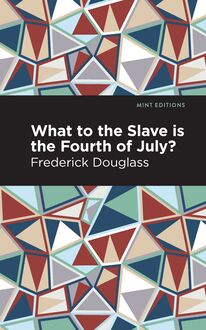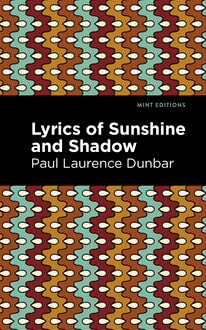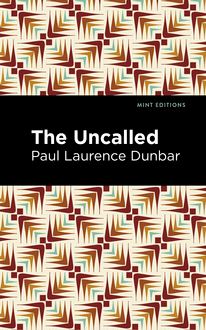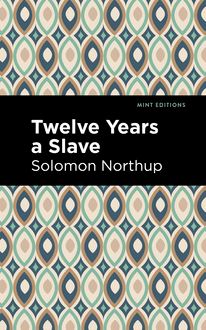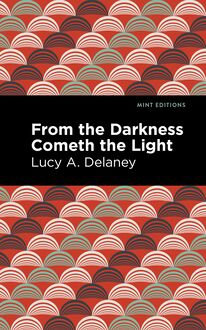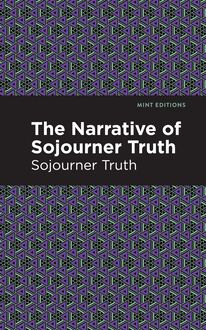-
 Univers
Univers
-
 Ebooks
Ebooks
-
 Livres audio
Livres audio
-
 Presse
Presse
-
 Podcasts
Podcasts
-
 BD
BD
-
 Documents
Documents
-
- Cours
- Révisions
- Ressources pédagogiques
- Sciences de l’éducation
- Manuels scolaires
- Langues
- Travaux de classe
- Annales de BEP
- Etudes supérieures
- Maternelle et primaire
- Fiches de lecture
- Orientation scolaire
- Méthodologie
- Corrigés de devoir
- Annales d’examens et concours
- Annales du bac
- Annales du brevet
- Rapports de stage
La lecture à portée de main
Vous pourrez modifier la taille du texte de cet ouvrage
Découvre YouScribe en t'inscrivant gratuitement
Je m'inscrisDécouvre YouScribe en t'inscrivant gratuitement
Je m'inscrisEn savoir plus
Vous pourrez modifier la taille du texte de cet ouvrage
En savoir plus

Description
Poems on Various Subjects, Religious and Moral (1773) is the first book of poetry published by an African American author. Written while Wheatley was a slave in Boston, the collection was published in England. Regarded for her mastery of classical poetic form, Phillis Wheatley earned praise from Voltaire and George Washington. Poems on Various Subjects, Religious and Moral has long been the subject of scholarly work on the history of African American literature, with some critics arguing that Wheatley’s poems proved detrimental to the struggle of enslaved African Americans. Whether Wheatley made excuses for slavery or, as some have argued, included subtle critiques of the institution in her writing, her talent and importance to the history of African American literature remain undisputed.
Despite her status as a slave, Phillis Wheatley seems to have viewed herself as a blessed individual, a woman for whom life itself was a sign of God’s grace, and in whom talent arose in the form of a foreign language. Many of her poems—elegies, odes, and monologues—are aimed at others. Whether in mourning, in praise, or in warning, Wheatley frequently offers her own voice to university students, royalty, God, the muses, and deceased infants. When she does offer glimpses of herself, for instance, in her poem “On Being Brought from Africa to America,” she provides a complex perspective on her status as a slave: “’Twas mercy brought me from my Pagan land, / Taught my benighted soul to understand / That there’s a God, that there’s a Saviour too.” While her words may seem strange to our modern view of the American institution of slavery, they provide an important historical lens onto the adoption of Christianity by African American slaves, who developed a faith grounded in resistance, hope, and redemption.
With a beautifully designed cover and professionally typeset manuscript, this edition of Phillis Wheatley’s Poems on Various Subjects, Religious and Moral is a classic of African American literature reimagined for modern readers.
Sujets
Informations
| Publié par | Mint Editions |
| Date de parution | 02 mars 2021 |
| Nombre de lectures | 0 |
| EAN13 | 9781513277820 |
| Langue | English |
| Poids de l'ouvrage | 4 Mo |
Informations légales : prix de location à la page 0,0300€. Cette information est donnée uniquement à titre indicatif conformément à la législation en vigueur.
Extrait
The Poems of Phillis Wheatley
Phillis Wheatley
The Poems of Phillis Wheatley was first published in 1773.
This edition published by Mint Editions 2021.
ISBN 9781513277417 | E-ISBN 9781513277820
Published by Mint Editions®
minteditionbooks.com
Publishing Director: Jennifer Newens
Design & Production: Rachel Lopez Metzger
Project Manager: Micaela Clark
Typesetting: Westchester Publishing Services
To The Right Honourable
The Countess Of Huntingdon,
The Following
P O E M S
Are Most Respectfully Inscribed.
By Her Much Obliged,
Very Humble
And Devoted Servant.
Phillis Wheatley.
C ONTENTS T O M AECENAS O N V IRTUE T O THE U NIVERSITY OF C AMBRIDGE , IN N EW -E NGLAND T O THE K ING ’ S M OST E XCELLENT M AJESTY 1768 O N BEING BROUGHT FROM A FRICA TO A MERICA O N THE D EATH OF THE R EV . D R . S EWELL , 1769 O N THE D EATH OF THE R EV . M R . G EORGE W HITEFIELD 1770 O N THE D EATH OF A YOUNG L ADY OF FIVE Y EARS OF A GE O N THE D EATH OF A YOUNG G ENTLEMAN T O A L ADY ON THE D EATH OF HER H USBAND G OLIATH OF G ATH T HOUGHTS ON THE W ORKS OF P ROVIDENCE T O A L ADY ON THE D EATH OF THREE R ELATIONS T O A C LERGYMAN ON THE D EATH OF HIS L ADY A N H YMN TO THE M ORNING A N H YMN TO THE E VENING I SAIAH LXIII. 1–8 O N R ECOLLECTION O N I MAGINATION A F UNERAL P OEM ON THE D EATH OF C. E. AN I NFANT OF T WELVE M ONTHS T O C APTAIN H—D, OF THE 65 TH R EGIMENT T O THE R IGHT H ONOURABLE W ILLIAM , E ARL OF D ARTMOUTH , H IS M AJESTY ’ S P RINCIPAL S ECRETARY OF S TATE FOR N ORTH -A MERICA , & C O DE TO N EPTUNE T O A L ADY ON HER COMING TO N ORTH -A MERICA WITH HER S ON , FOR THE R ECOVERY OF HER H EALTH T O A L ADY ON HER REMARKABLE P RESERVATION IN AN H URRICANE IN N ORTH -C AROLINA T O A L ADY AND HER C HILDREN , ON THE D EATH OF HER S ON AND THEIR B ROTHER T O A G ENTLEMAN AND L ADY ON THE D EATH OF THE L ADY ’ S B ROTHER AND S ISTER , AND A C HILD OF THE N AME OF A VIS , AGED ONE Y EAR O N THE D EATH OF D R . S AMUEL M ARSHALL 1771 T O A G ENTLEMAN ON HIS V OYAGE TO G REAT -B RITAIN FOR THE R ECOVERY OF HIS H EALTH T O THE R EV . D R . T HOMAS A MORY , ON READING HIS S ERMONS ON D AILY D EVOTION , IN WHICH THAT D UTY IS RECOMMENDED AND ASSISTED O N THE D EATH OF J. C. AN I NFANT A N H YMN TO H UMANITY T O THE H ONOURABLE T. H. E SQ ; ON THE D EATH OF HIS D AUGHTER N IOBE IN D ISTRESS FOR HER C HILDREN SLAIN BY A POLLO , FROM O VID ’ S M ETAMORPHOSES , B OOK VI AND FROM A VIEW OF THE P AINTING OF M R . R ICHARD W ILSON T O S. M. A YOUNG A FRICAN P AINTER , ON SEEING HIS W ORKS T O HIS H ONOUR THE L IEUTENANT -G OVERNOR , ON THE D EATH OF HIS L ADY M ARCH 24, 1773 A F AREWEL TO A MERICA . T O M RS . S. W. A R EBUS , BY I. B. A N A NSWER TO THE R EBUS , BY THE A UTHOR OF THESE P OEMS
T O M AECENAS
Maecenas, you, beneath the myrtle shade,
Read o’er what poets sung, and shepherds play’d.
What felt those poets but you feel the same?
Does not your soul possess the sacred flame?
Their noble strains your equal genius shares
In softer language, and diviner airs.
While Homer paints, lo! circumfus’d in air,
Celestial Gods in mortal forms appear;
Swift as they move hear each recess rebound,
Heav’n quakes, earth trembles, and the shores resound.
Great Sire of verse, before my mortal eyes,
The lightnings blaze across the vaulted skies,
And, as the thunder shakes the heav’nly plains,
A deep felt horror thrills through all my veins.
When gentler strains demand thy graceful song,
The length’ning line moves languishing along.
When great Patroclus courts Achilles’ aid,
The grateful tribute of my tears is paid;
Prone on the shore he feels the pangs of love,
And stern Pelides tend’rest passions move.
Great Maro’s strain in heav’nly numbers flows,
The Nine inspire, and all the bosom glows.
O could I rival thine and Virgil’s page,
Or claim the Muses with the Mantuan Sage;
Soon the same beauties should my mind adorn,
And the same ardors in my soul should burn:
Then should my song in bolder notes arise,
And all my numbers pleasingly surprise;
But here I sit, and mourn a grov’ling mind,
That fain would mount, and ride upon the wind.
Not you, my friend, these plaintive strains become,
Not you, whose bosom is the Muses home;
When they from tow’ring Helicon retire,
They fan in you the bright immortal fire,
But I less happy, cannot raise the song,
The fault’ring music dies upon my tongue.
The happier Terence 1 all the choir inspir’d,
His soul replenish’d, and his bosom fir’d;
But say, ye Muses, why this partial grace,
To one alone of Afric’s sable race;
From age to age transmitting thus his name
With the finest glory in the rolls of fame?
Thy virtues, great Maecenas! shall be sung
In praise of him, from whom those virtues sprung:
While blooming wreaths around thy temples spread,
I’ll snatch a laurel from thine honour’d head,
While you indulgent smile upon the deed.
As long as Thames in streams majestic flows,
Or Naiads in their oozy beds repose
While Phoebus reigns above the starry train
While bright Aurora purples o’er the main,
So long, great Sir, the muse thy praise shall sing,
So long thy praise shal’ make Parnassus ring:
Then grant, Maecenas, thy paternal rays,
Hear me propitious, and defend my lays.
1 . He was an African by birth.
O N V IRTUE
O Thou bright jewel in my aim I strive
To comprehend thee. Thine own words declare
Wisdom is higher than a fool can reach.
I cease to wonder, and no more attempt
Thine height t’ explore, or fathom thy profound.
But, O my soul, sink not into despair,
Virtue is near thee, and with gentle hand
Would now embrace thee, hovers o’er thine head.
Fain would the heav’n-born soul with her converse,
Then seek, then court her for her promis’d bliss.
Auspicious queen, thine heav’nly pinions spread,
And lead celestial Chastity along;
Lo! now her sacred retinue descends,
Array’d in glory from the orbs above.
Attend me, Virtue, thro’ my youthful years!
O leave me not to the false joys of time!
But guide my steps to endless life and bliss.
Greatness, or Goodness, say what I shall call thee,
To give me an higher appellation still,
Teach me a better strain, a nobler lay,
O thou, enthron’d with Cherubs in the realms of day.
T O THE U NIVERSITY OF C AMBRIDGE , IN N EW -E NGLAND
W hile an intrinsic ardor prompts to write,
The muses promise to assist my pen;
’Twas not long since I left my native shore
The land of errors, and Egyptian gloom:
Father of mercy, ’twas thy gracious hand
Brought me in safety from those dark abodes.
Students, to you ’tis giv’n to scan the heights
Above, to traverse the ethereal space,
And mark the systems of revolving worlds.
Still more, ye sons of science ye receive
The blissful news by messengers from heav’n,
How Jesus’ blood for your redemption flows.
See him with hands out-stretcht upon the cross;
Immense compassion in his bosom glows;
He hears revilers, nor resents their scorn:
What matchless mercy in the Son of God!
When the whole human race by sin had fall’n,
He deign’d to die that they might rise again,
And share with him in the sublimest skies,
Life without death, and glory without end.
Improve your privileges while they stay,
Ye pupils, and each hour redeem, that bears
Or good or bad report of you to heav’n.
Let sin, that baneful evil to the soul,
By you be shun’d, nor once remit your guard;
Suppress the deadly serpent in its egg.
Ye blooming plants of human race divine,
An Ethiop tells you ’tis your greatest foe;
Its transient sweetness turns to endless pain,
And in immense perdition sinks the soul.
T O THE K ING ’ S M OST E XCELLENT M AJESTY 1768
Y our subjects hope, dread Sire—
The crown upon your brows may flourish long,
And that your arm may in your God be strong!
O may your sceptre num’rous nations sway,
And all with love and readiness obey!
But how shall we the British king reward!
Rule thou in peace, our father, and our lord!
Midst the remembrance of thy favours past,
The meanest peasants most admire the last 1
May George, beloved by all the nations round,
Live with heav’ns choicest constant blessings crown’d!
Great God, direct, and guard him from on high,
And from his head let ev’ry evil fly!
And may each clime with equal gladness see
A monarch’s smile can set his subjects free!
1 . The Repeal of the Stamp Act.
O N BEING BROUGHT FROM A FRICA TO A MERICA
’ T was mercy brought me from my Pagan land,
Taught my benighted soul to understand
That there’s a God, that there’s a Saviour too:
Once I redemption neither sought nor knew,
Some view our sable race with scornful eye,
“Their colour is a diabolic die.”
Remember, Christians, Negroes, black as Cain,
May be refin’d, and join th’ angelic train.
O N THE D EATH OF THE R EV . D R . S EWELL , 1769
E re yet the morn its lovely blushes spread,
See Sewell number’d with the happy dead.
Hail, holy man, arriv’d th’ immortal shore,
Though we shall hear thy warning voice no more.
Come, let us all behold with wishful eyes
T
-
 Univers
Univers
-
 Ebooks
Ebooks
-
 Livres audio
Livres audio
-
 Presse
Presse
-
 Podcasts
Podcasts
-
 BD
BD
-
 Documents
Documents
-
Jeunesse
-
Littérature
-
Ressources professionnelles
-
Santé et bien-être
-
Savoirs
-
Education
-
Loisirs et hobbies
-
Art, musique et cinéma
-
Actualité et débat de société
-
Jeunesse
-
Littérature
-
Ressources professionnelles
-
Santé et bien-être
-
Savoirs
-
Education
-
Loisirs et hobbies
-
Art, musique et cinéma
-
Actualité et débat de société
-
Actualités
-
Lifestyle
-
Presse jeunesse
-
Presse professionnelle
-
Pratique
-
Presse sportive
-
Presse internationale
-
Culture & Médias
-
Action et Aventures
-
Science-fiction et Fantasy
-
Société
-
Jeunesse
-
Littérature
-
Ressources professionnelles
-
Santé et bien-être
-
Savoirs
-
Education
-
Loisirs et hobbies
-
Art, musique et cinéma
-
Actualité et débat de société
- Cours
- Révisions
- Ressources pédagogiques
- Sciences de l’éducation
- Manuels scolaires
- Langues
- Travaux de classe
- Annales de BEP
- Etudes supérieures
- Maternelle et primaire
- Fiches de lecture
- Orientation scolaire
- Méthodologie
- Corrigés de devoir
- Annales d’examens et concours
- Annales du bac
- Annales du brevet
- Rapports de stage

